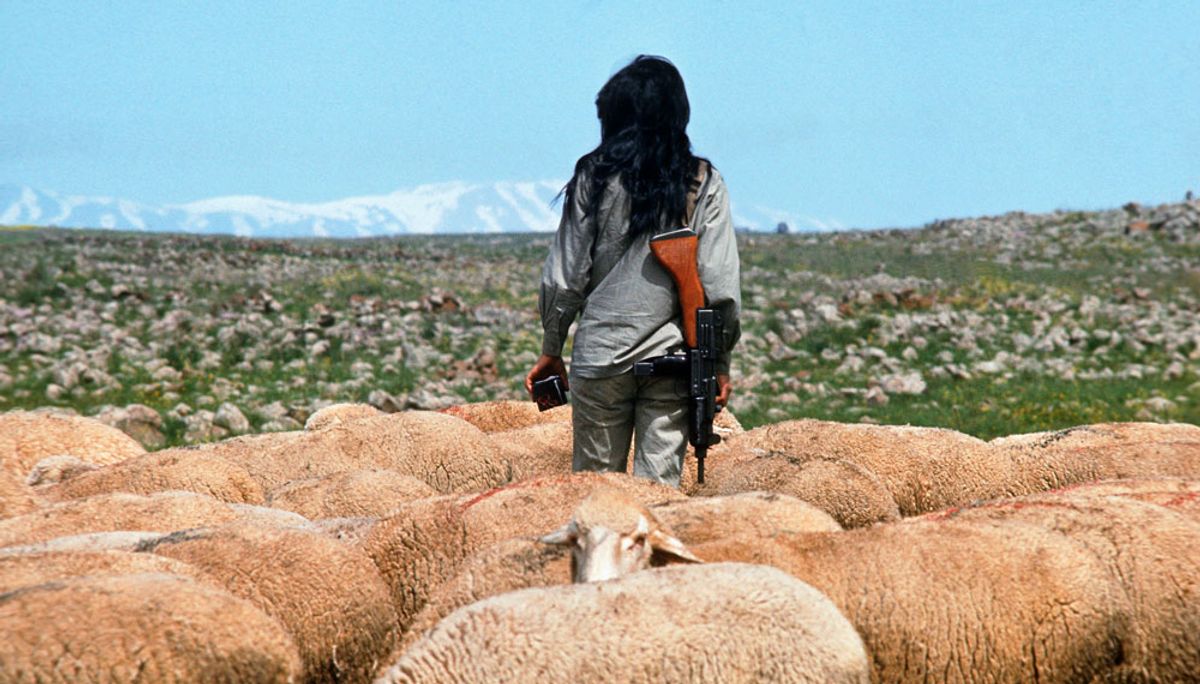Quite a beginning:
When my parents moved to Cambridge, Massachusetts, in 1974, they were young idealists trying to foment Marxist revolution.
Having kids and getting a mortgage mellowed their radical views substantially, but I still grew up marinating in progressive ideas. One such idea was that nationalism was a great evil that had caused Germans to hate and murder all of my mother’s aunts and uncles in Poland. Another idea was that private schools should not exist, a noble notion which lasted until we realized I was going to finish the math offerings at our small-town New Hampshire public high school before starting ninth grade. That’s how I ended up at Phillips Exeter.
Naturally, it was the insufferably anti-colonialist atmosphere of Oxford that changed this guy's course.
It was at Oxford, after having one too many chats over a glass of port with a fellow Oxonian who seemed way too interested in the Jewish influence on the American political process, that something shifted in me. The place was so fully blanketed by the fumes of post-colonial theory that Zionism (and its inherent criminality) was a constant subject, which made me wonder more deeply about it all.
Which leads us to:
Ben Yochai witnessed the Roman annihilation of Judea. He understood that the way your enemy fights a war affects the definition of the righteous way to fight back. In other words, his recommendation was calibrated to the assumption that if the Jews are fighting a war, then their own future survival (and flourishing) is a nonnegotiable goal of the war. Thus, a Jew living by the Torah and confronted with an enemy armed with a human shield must ask: What does God want me to do now, given what I face? And how might I figure that out by studying the Torah?
As Abraham learns when arguing with God about Sodom, the ultimate decision about who lives and who perishes in calamity is the Creator’s choice, and while you can plead with God to spare the righteous, you must also have the moral humility to trust that He knows what He’s doing.
Thus:
Instead of bragging about the extra danger our soldiers experience for the sake of sparing enemy noncombatants, we should reject the premise that we Jews bear any responsibility for protecting the human shields employed by our enemy.
. . .
If our own, unsurpassably subtle ethical tradition guides us to these policies, then it is only our lingering ideological subjugation to the Western tradition that makes them seem scandalous. Like the Jew among nations, Israel constantly struggles with its half-successful attempt to blend in with the crowd and pretend to be a member like any other, and it is time to put an end to this paralyzing charade. We did not stick to our Law through 3,000 years of human civilization to continue national life as the perpetual defendant. It is our job to know that Law, to teach what we know—and, most of all, to live by it.
As the nation finally turns to the difficult work of doing with Amalek what our Creator has long been asking of us, we can be newly confident He is with us.
About the Author Jeremy England is physicist, biologist, and machine learning researcher who also has received ordination as an orthodox rabbi. Previously a physics professor at MIT, he now resides in Israel and loves exploring the Torah’s commentaries on scientific reasoning.



Thanks for making it clear that genocide is OK as long as you really believe that you are the chosen people a la Manifest Destiny or Nazism
THEIR "driven by ancient hatred"
OUR "unsurpassably subtle ethical traition"
"stop being squeamish about killing the kids, are you some soy christian or something?"